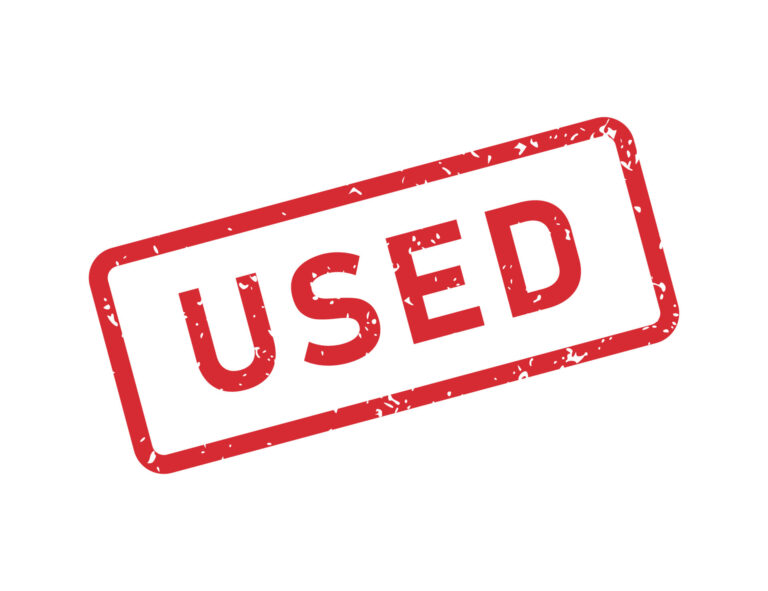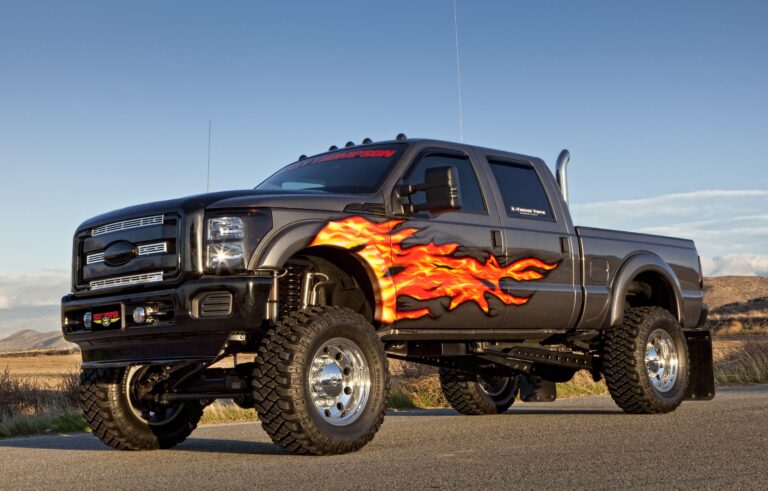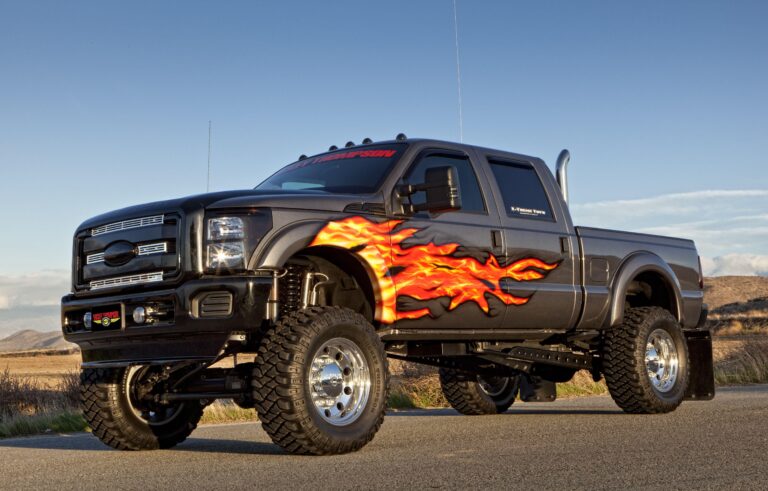How Much Would It Cost To Rent A U-Haul Trailer From Canada To The USA
How Much Would It Cost To Rent A U-Haul Trailer From Canada To The USA cars.truckstrend.com
Moving across international borders is a significant undertaking, fraught with logistical complexities and a myriad of costs. For many Canadians eyeing a new life or an extended stay south of the border, the idea of a self-move using a U-Haul trailer often comes to mind as a potentially cost-effective solution. However, the seemingly straightforward task of renting a trailer in Canada and dropping it off in the United States is, in reality, far more intricate than most anticipate. This comprehensive guide will dissect the true costs, policies, and practicalities involved in leveraging U-Haul for a cross-border move, debunking common misconceptions and providing actionable insights for a smoother transition.
The Myth of the One-Way International Trailer Rental
How Much Would It Cost To Rent A U-Haul Trailer From Canada To The USA
Let’s address the elephant in the room right away: U-Haul generally does NOT offer one-way international trailer rentals from Canada to the USA. This is a critical piece of information that often surprises individuals planning a cross-border move. Unlike their truck rentals, which are frequently available for one-way international trips, U-Haul trailers are typically restricted to round-trip rentals within the country of origin.
Why this restriction? The reasons are multifaceted:
- Logistical Nightmare: Managing inventory and balancing equipment between two countries with differing regulations, return points, and demand patterns is incredibly complex and costly.
- Customs and Border Control: Trailers, as distinct units, would require specific import/export procedures, potential duties, and tracking, adding layers of bureaucratic red tape that U-Haul prefers to avoid for simple rentals.
- Liability and Insurance: Cross-border operations introduce complicated legal and insurance considerations that are simplified by keeping equipment within its country of origin.
Therefore, if your primary plan revolves around picking up a U-Haul trailer in, say, Toronto, and dropping it off in Buffalo, New York, you’ll likely need to revise your strategy.

Scenario 1: The "Round-Trip Trailer" Option (and its true implications)
Given the one-way international trailer restriction, the only way to utilize a U-Haul trailer rented in Canada for a move to the USA is to commit to a round-trip rental. This means you would rent the trailer in Canada, tow your belongings to the USA, unload them, and then drive the empty trailer back across the border to return it to the original U-Haul location in Canada.
While this is technically possible, it introduces significant costs and logistical challenges that often negate the perceived savings:
Cost Factors for a Round-Trip U-Haul Trailer Rental (Canada to USA and back):
-
Base Trailer Rental Fee:
- U-Haul trailer prices are typically daily or weekly, varying by size. Since you’ll need the trailer for the duration of your trip (including the empty return leg), this cost can accumulate.
- Typical Sizes & Estimated Daily Costs (CAD):
- 4’x8′ Cargo Trailer: Smallest, ideal for dorm rooms or small apartments. Approx. $19.95 – $29.95 per day.
- 5’x8′ Cargo Trailer: Good for studio or 1-bedroom apartments. Approx. $24.95 – $34.95 per day.
- 5’x10′ Cargo Trailer: Larger, suitable for 1-2 bedroom apartments. Approx. $34.95 – $44.95 per day.
- 6’x12′ Cargo Trailer: Largest enclosed trailer, often for 2-3 bedroom homes. Approx. $39.95 – $54.95 per day.
- Utility Trailers (Open): Flatbeds without enclosed walls, generally cheaper, but less secure for household goods.
- Note: Weekly and monthly rates often offer a discount over daily rates.
-
Insurance (Safetow):
- Highly recommended for peace of mind. Safetow coverage protects against damage to the trailer itself. This is an additional daily charge.
- Estimated Cost: $8 – $15 CAD per day, depending on coverage level.
-
Fuel Costs (Significant!):
- This is often the largest hidden cost. You’re not just paying for fuel to get to your destination in the USA, but also for the entire return trip with an empty trailer.
- Factors: Tow vehicle’s fuel efficiency, trailer weight (loaded and empty), distance, fuel prices in Canada and USA.
- Practical Advice: A long-distance round trip (e.g., Toronto to Florida and back) could easily consume hundreds, if not thousands, of dollars in fuel.
-
Taxes:
- Canadian provincial sales tax (PST/HST/GST) will apply to the rental fee and any add-ons.
-
Hitch and Wiring Kit:
- If your vehicle isn’t already equipped for towing, you’ll need a hitch receiver, ball mount, and electrical wiring. U-Haul sells/installs these, but it’s a significant upfront cost (potentially $300 – $800+ CAD for parts and installation).
-
Border Crossing Time & Potential Delays:
- You’ll cross the border twice (once loaded, once empty). This means double the potential for customs checks and wait times.
- Customs Declarations: Even with personal effects, you must properly declare all goods when entering the USA. When returning the empty trailer, you’ll declare it as a temporary import for personal use returning to Canada.
-
Accommodation & Food:
- For long distances, the return trip with an empty trailer will require additional overnight stays and meal expenses.
-
Time Cost:
- The time spent driving back to Canada to return the trailer is valuable and should be factored into your overall cost analysis.
Scenario 2: The U-Haul Truck + Tow Dolly/Car Carrier Option (The Viable Cross-Border Solution)
For most people moving from Canada to the USA with U-Haul, the most practical and commonly used solution is renting a one-way U-Haul truck, often combined with a tow dolly or car carrier if you need to transport a vehicle. U-Haul trucks are typically permitted for one-way international moves.
Cost Factors for a One-Way U-Haul Truck Rental (Canada to USA):
-
Base Truck Rental Rate:
- This is dynamic and depends heavily on:
- Truck Size: 10ft, 15ft, 20ft, 26ft. Larger trucks cost more.
- Origin and Destination: Prices fluctuate based on demand and equipment availability between specific cities/regions. Moving from a high-demand area to a low-demand area might be cheaper, or vice-versa.
- Rental Date: Peak moving seasons (summer, end of month) are more expensive.
- Distance: The base rate usually includes a set number of miles/kilometers.
- Estimated Base Rates (CAD, highly variable):
- 10ft Truck: Smallest, for studio/1-bed apt. $500 – $1,500+ for a cross-border trip.
- 15ft Truck: 1-2 bed apt. $800 – $2,000+
- 20ft Truck: 2-3 bed home. $1,200 – $3,000+
- 26ft Truck: Largest, 3-4 bed home. $1,500 – $4,000+
- This is dynamic and depends heavily on:
-
Mileage Charge:
- While a certain mileage is included, you’ll pay a per-kilometer charge for anything over that allowance. This can add up significantly on long international moves.
- Estimated Cost: $0.30 – $0.70 CAD per kilometer over allowance.
-
Fuel Costs (Major Expense!):
- U-Haul trucks are heavy and notoriously fuel-inefficient, especially the larger models. This will be a substantial part of your budget.
- Estimated Fuel Economy: 8-12 MPG (US) or 19-29 L/100km (Canada).
- Practical Advice: Budget generously for fuel. You pick up the truck with an empty tank and are expected to return it with the same amount (or usually full).
-
Insurance (Safemove/Safeload):
- Crucial for protecting your belongings and the truck. Options include Safemove (damage to truck, coverage for cargo) and Safeload (damage to cargo only).
- Estimated Cost: $40 – $150+ CAD for the duration of the rental, depending on coverage and truck size.
-
Taxes:
- Canadian provincial taxes on the rental. You might also encounter US state taxes depending on where you drop off.
-
Towing Equipment (if applicable):
- Tow Dolly: For front-wheel-drive vehicles (two wheels on the ground).
- Estimated Cost (One-way): $100 – $300 CAD.
- Car Carrier: For all-wheel-drive or rear-wheel-drive vehicles (all four wheels off the ground).
- Estimated Cost (One-way): $200 – $500 CAD.
- Tow Dolly: For front-wheel-drive vehicles (two wheels on the ground).
-
Moving Supplies:
- Boxes, tape, furniture pads, dollies, etc. These add to the overall cost.
- Estimated Cost: $100 – $500+ CAD, depending on volume.
-
Environmental Surcharges/Fees:
- Small, but present, administrative fees.
Important Considerations Beyond Rental Fees
Beyond the direct U-Haul costs, several other factors significantly impact your overall moving budget and experience:
- Currency Exchange Rates: All U-Haul rentals initiated in Canada will be quoted in CAD. Ensure you factor in the exchange rate when comparing to US-based costs or budgeting for expenses once you’re in the USA.
- Customs and Border Procedures:
- Required Documents: Valid passports, proof of US residency (visa, green card, etc.), detailed inventory list of all goods being imported (Form B4/E for Canada, CBP Form 7501 for USA for some items).
- Declaration: You must declare all goods to US Customs and Border Protection (CBP). Personal and household effects are generally exempt from duties if they’ve been owned and used for at least one year.
- Prohibited Items: Be aware of items you cannot bring into the US (e.g., certain firearms, controlled substances, agricultural products).
- Patience: Border crossings can take time, especially with a large truck.
- Vehicle Compatibility (for Towing): If you opt for the round-trip trailer option, ensure your personal vehicle has the appropriate towing capacity (Gross Vehicle Weight Rating – GVWR) for the loaded trailer. Overloading is dangerous and illegal.
- Towing Experience: Towing a trailer or driving a large truck requires skill and practice. Be prepared for reduced visibility, longer stopping distances, and wider turns.
- Accommodation and Food: For multi-day trips, factor in lodging and meal expenses.
- Road Tolls: Account for potential tolls on highways in both Canada and the USA.
Illustrative Cost Table: U-Haul Options Canada to USA
This table provides estimates only. Actual prices will vary significantly based on specific routes, dates, truck/trailer availability, and current fuel prices. Always get a direct quote from U-Haul for your specific needs.
| Item/Service | Estimated Cost (CAD) | Notes/Applicability |
|---|---|---|
| U-Haul Trailer Rental (Round Trip Only) | Not for one-way international; must be returned to Canada. | |
| 4’x8′ Cargo Trailer (per day) | $20 – $30 | Smallest enclosed, for very light loads. |
| 5’x8′ Cargo Trailer (per day) | $25 – $35 | Studio/1-bed apartment. |
| 5’x10′ Cargo Trailer (per day) | $35 – $45 | 1-2 bed apartment. |
| 6’x12′ Cargo Trailer (per day) | $40 – $55 | Largest enclosed, 2-3 bed home. |
| Safetow Insurance (per day) | $8 – $15 | Recommended for trailer damage coverage. |
| Hitch Installation (if needed) | $300 – $800+ (one-time) | For your personal vehicle. |
| U-Haul Truck Rental (One-Way Canada to USA) | The most common and viable U-Haul option for cross-border moves. | |
| 10′ Truck (Base Rate, One-Way) | $500 – $1,500+ | Studio/1-bed apt. Highly variable by distance/route. |
| 15′ Truck (Base Rate, One-Way) | $800 – $2,000+ | 1-2 bed apt. Highly variable by distance/route. |
| 20′ Truck (Base Rate, One-Way) | $1,200 – $3,000+ | 2-3 bed home. Highly variable by distance/route. |
| 26′ Truck (Base Rate, One-Way) | $1,500 – $4,000+ | Largest, 3-4 bed home. Highly variable by distance/route. |
| Mileage Charge (per km over allowance) | $0.30 – $0.70 | Applies if you exceed the mileage included in the base rate. |
| Safemove/Safeload Insurance (per rental) | $40 – $150+ | Highly recommended; covers truck damage and/or cargo. |
| Car Carrier Rental (One-Way) | $200 – $500 | To transport your vehicle (all wheels up). Added to truck rental. |
| Tow Dolly Rental (One-Way) | $100 – $300 | To transport your FWD vehicle (two wheels up). Added to truck rental. |
| General & Variable Costs (Applicable to Both Scenarios) | ||
| Fuel (per 1000 km, highly variable) | $250 – $600+ (for truck/tow vehicle) | Major cost; depends on vehicle, load, fuel prices. Budget generously. |
| Moving Supplies (boxes, pads, etc.) | $100 – $500+ | Essential for packing and protecting goods. |
| Provincial/State Taxes | Varies (5% – 15%) | Applied to rental fees and add-ons. |
| Accommodation & Food (per day/night) | $150 – $300+ | For multi-day trips. |
| Border Processing Fees | Typically $0 (for personal effects, but be prepared) | No specific fee for personal effects, but potential for delays/inspection costs if issues arise. |
| Currency Conversion Buffer | 5% – 10% of total | Account for CAD to USD fluctuations. |
Practical Advice and Actionable Insights
- Call U-Haul Directly (and be Specific): Do not rely solely on online estimates for cross-border moves. Call U-Haul’s international reservation line and explicitly state your Canadian pick-up and US drop-off locations to confirm availability and pricing for trucks. Reconfirm that one-way trailer rentals are generally not possible.
- Get Multiple Quotes: Prices can vary wildly. Check different pick-up dates and truck sizes. Also, compare U-Haul with other moving companies or freight forwarders, especially for very long distances or if you have minimal items.
- Factor in ALL Costs: Beyond the rental fee, fuel, insurance, and supplies are significant. Don’t forget potential tolls, accommodation, and the value of your time.
- Prepare for Customs: This cannot be stressed enough. Have all your documents ready (passport, visa/proof of residency, detailed inventory list, vehicle titles if applicable). Declare everything. Being unprepared can lead to significant delays and complications.
- Pack Smartly: Maximize space in the truck/trailer. Distribute weight evenly. Use proper packing materials to prevent damage.
- Consider Off-Peak Moving: If possible, move during the fall, winter, or spring, and avoid the end of the month or major holidays, when demand (and prices) are highest.
- Do Your Homework on US Driving Laws: Be aware of speed limits, weight restrictions, and state-specific towing laws for large vehicles.
Concluding Summary
Renting a U-Haul trailer for a one-way move from Canada to the USA is, for the most part, a non-starter. U-Haul’s policy generally restricts trailers to round-trip rentals within the country of origin due to complex international logistics. The most viable and common U-Haul solution for cross-border moves is to rent a one-way U-Haul truck, often accompanied by a car carrier or tow dolly.
The cost of such a move is highly variable, influenced by truck size, distance, time of year, and crucially, fuel prices. While a U-Haul self-move can be more economical than hiring professional movers, it demands meticulous planning, a realistic budget that accounts for all hidden expenses (especially fuel and insurance), and a thorough understanding of customs procedures. Moving across borders is inherently complex; diligent preparation and flexibility are your best allies for a smooth and cost-effective transition.
Frequently Asked Questions (FAQ)
Q1: Can I rent a U-Haul trailer in Canada and drop it off in the USA?
A1: Generally, no. U-Haul typically does not allow one-way international trailer rentals. You would need to rent it round-trip and return it to the original Canadian location.
Q2: What is the cheapest way to move from Canada to the USA using U-Haul?
A2: The cheapest U-Haul option is usually renting a smaller one-way U-Haul truck (e.g., 10ft or 15ft) from Canada to the USA, considering your goods fit. Factor in fuel and insurance, as these are major costs.
Q3: Does U-Haul provide customs assistance for cross-border moves?
A3: No. U-Haul is a rental company. You are solely responsible for understanding and complying with all customs regulations, declaring your goods, and having the necessary documentation for both Canadian and US customs.
Q4: How much does U-Haul insurance cost for a cross-border truck rental?
A4: U-Haul insurance (Safemove or Safeload) typically costs between $40 and $150+ CAD for the duration of a one-way truck rental, depending on the coverage level and truck size. It’s highly recommended.
Q5: Do I need a special driver’s license to drive a U-Haul truck or tow a trailer across the border?
A5: For typical U-Haul trucks and trailers (non-commercial, under certain weight limits), a standard Canadian provincial driver’s license (e.g., Class 5 or G) is usually sufficient. However, always check the specific Gross Vehicle Weight Rating (GVWR) of the truck/trailer and the relevant provincial/state laws, especially if the combined weight exceeds common thresholds for non-commercial licenses.
Q6: What documents do I need for customs when moving personal effects from Canada to the USA?
A6: You will need your valid passport, any necessary US immigration documents (visa, green card, proof of US citizenship), and a detailed, itemized inventory list of all goods you are bringing into the USA. This list should ideally include descriptions and approximate values. You may need to complete specific US Customs and Border Protection (CBP) forms, though for personal effects, a simple inventory is often sufficient at the border.





